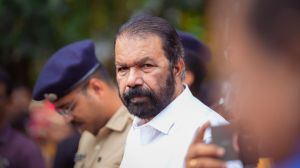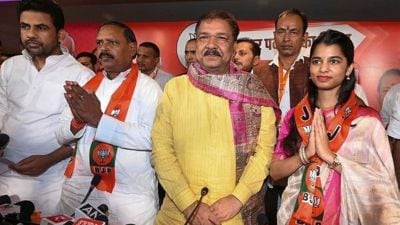Stay updated with the latest - Click here to follow us on Instagram
Girish Patel, prominent human rights lawyer from Gujarat, dies at 85
Sources close to the Patels said that Girishbhai breathed his last at 4 am and his body has been shifted to Rajasthan Hospital in Shahibaug area of Ahmedabad.
 Girish Patel. Patel, a native of Nadiad, was the son of a sanitary inspector.
Girish Patel. Patel, a native of Nadiad, was the son of a sanitary inspector.
Girish Patel, one of the most revered human rights lawyer in Gujarat and an expert on Indian Constitution, passed away at his residence in Ahmedabad in the wee hours of Saturday after a prolonged illness due to age-related complications. Patel was 85, he is survived by wife Kusum and daughters, Roopal and Seema.
Sources close to the Patels said that Girishbhai breathed his last at 4 am and his body has been shifted to Rajasthan Hospital in Shahibaug area of Ahmedabad. Sources added that as per Girishbhai’s wish, his body will be donated.
Patel, a native of Nadiad, was the son of a sanitary inspector. He did his Masters in Law from Harvard University in the US. In his initial years, Patel was a professor at the then New Law College in Ahmedabad, later he was selected as a member of the Gujarat State Law Commission in 1972. After serving the commission for three years, he started practicing law at the Gujarat High Court. He was one of the designated senior counsels of the HC.
Patel was known for his devotion to fight for the rights of the Dalits, Adivasis, labourers and women. With the introduction of Public Interest Litigation (PIL) in 1980, he was provided with the biggest opportunity to work for them. Patel had moved more than 200 PILs in the HC on issues ranging from education, shelter, water, livelihood, health, atrocities on Dalits, tribals, women and children and civil and political rights. Most of this PILs were moved under the banner of his organisation, Lok Adhikar Sangh.
In May 2009, Patel got a unique felicitation for his contribution to the cause of human rights and civil rights by a group of social workers, academicians, trade union activists and lawyers. But Patel had become quite disenchanted with the judiciary. In his felicitation address, he advised the activists not to approach the courts during a movement to safeguard the rights of the downtrodden.
Patel had said that the entire movement dies down following court’s order which generally falls in favour of the present trend of globalisation. In the same context, Patel had also said that the higher judiciary was making the Constitution of India adaptable to globalisation.
Patel, as a principle, never fought any case against Dalits, tribals, labourers and women.







